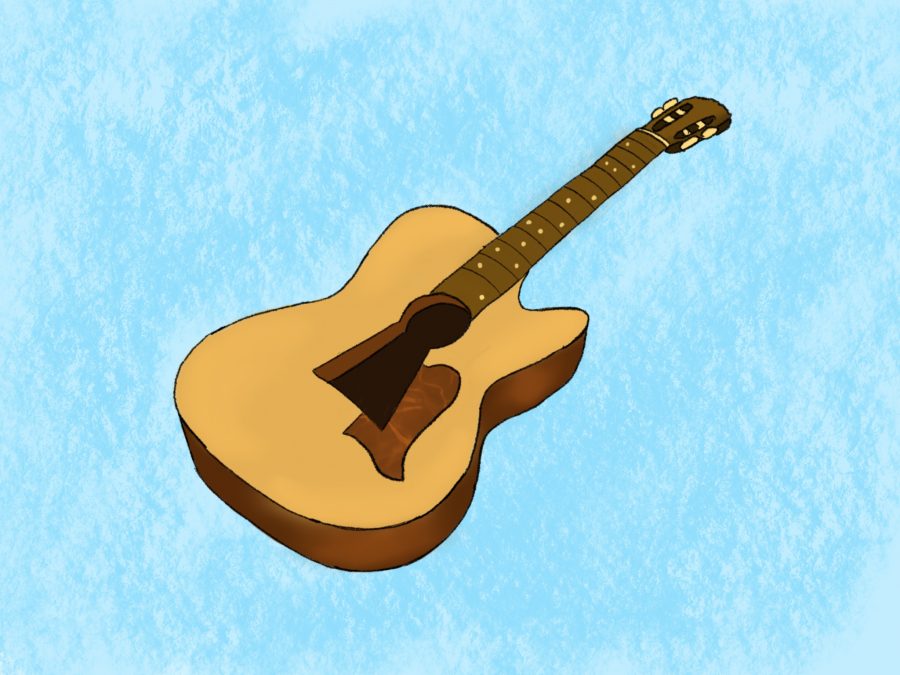“USE OF BUTLER SCHOOL OF MUSIC PRACTICE FACILITIES IS RESTRICTED TO CURRENTLY ENROLLED MUSIC STUDENTS AND APPROVED BSOM PROGRAM PARTICIPANTS. VIOLATORS ARE SUBJECT TO REMOVAL AND/OR PROSECUTION.”
Most music practice rooms in the Music Building and Recital Hall bear these words on their doors, warning amateur musicians — those not affiliated with the Butler School — that pursuit of a quiet and private place to practice may lead to legal consequences.
The Butler School of Music boasts “125 high-quality, soundproof practice rooms,” according to its website. None are open to non-Butler students.
Nor should they be. When I visited the practice rooms at 11 a.m. on a Wednesday, most of the ones I passed were in use. Butler students need a dedicated space to study their music without interruption just like any other student needs a place to study their textbooks.
“Music study is a serious pursuit, and our facilities are specialized,” said Russell Podgorsek, the Butler School’s building coordinator, in an email. “We need the instruments and other equipment functioning at the highest possible level to support the young experts who are studying here.”
Musicians need to practice. Studies show that long-term, deliberate practice plays an essential role in musical achievement.
“I can’t stress the importance of practicing on a daily basis enough because it’s the only way your voice is going to be better,” music performance sophomore Nicholas Ryland said.
However, without access to music school rooms, amateur student musicians who live on campus are left with nowhere to practice but their dorms.
The University Residence Hall Manual states that “playing musical instruments is permitted within the living area, as long as it is not disturbing others.” However, any student who has lived in a dorm knows loud sounds can easily bother other residents. In dorms such as Carothers and Andrews, public pianos are located in rooms that double as public study areas, disturbing students who wish to use the space to learn.
According to the manual, University Housing and Dining gives priority to students’ right to sleep and study, saying “the noise level should be such that it does not interfere with the rights of others.”
It’s a catch-22 for amateur student vocalists and musicians, especially those who play loud instruments such as piano, electric guitar, percussion or horns. Using Butler music rooms is against University policy, and practicing loud instruments may violate residence hall rules.
Amateur musicians at UT want practice rooms. A search of the UT-Austin subreddit for “practice rooms” returns seven inquiries into practice rooms for non-music majors over the last few years.
“I feel super awkward singing in my dorm room … and I was wondering since the practice rooms are only open to music majors now, is it still cool to go use one?” one student asked.
“Do any of the dorms have rooms for music practice? … I play a percussion instrument, and it might disturb others,” another user said.
If UT wants to produce well-rounded students with a wide skill set in different disciplines, the University must find ways to support their hobbies and talents. Amateur student musicians need a place on campus to practice their instruments and vocals. Rooms for non-Butler students don’t need to be as specialized or technical as the ones in the music school, but they should exist as a space for students to develop their talents without fear of violating University policy.
The University takes care in providing on-campus students with a place to live. However, on-campus housing should not come at the cost of sacrificing musical interests. UT must provide places for amateur student musicians to practice without breaking rules or disturbing others.
Springs is a government freshman from Dallas.





















